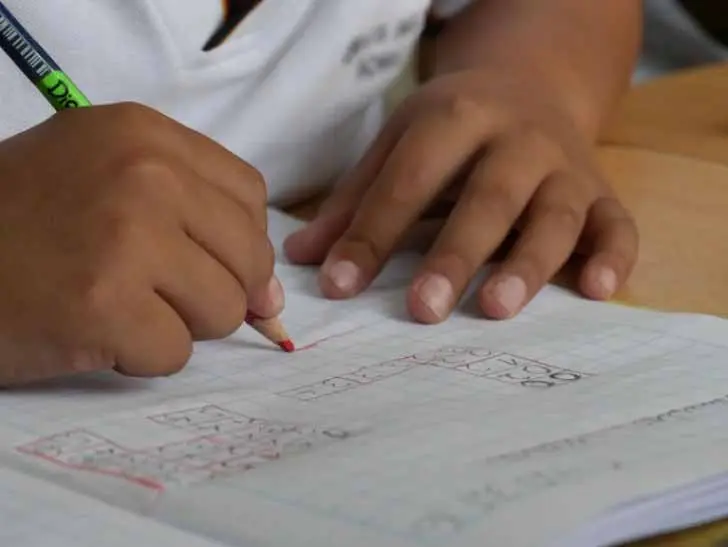Teacher Sparks Debate by Eliminating Homework, Saying “Home is for Family Time”

Posted April 13, 2024 by: Admin
Homework has long been considered an essential component of a child’s education, reinforcing knowledge gained in the classroom and fostering a sense of responsibility. However, the necessity of homework has been the subject of ongoing debate between parents and teachers, with some arguing that it places undue pressure on children and families. Melissa, a primary school teacher, has recently sparked this discussion once again by making the unconventional decision to eliminate homework for her students.
Traditionally, homework has been assigned to students to help them reinforce their understanding of the material covered in class. By engaging with the subject matter outside of school hours, children are encouraged to think critically and explore different aspects of the course. This practice has been widely accepted as a means of enhancing the learning experience and ensuring that students are well-prepared for future lessons.
However, Melissa’s perspective on homework challenges this conventional wisdom. She believes that children should be given the opportunity to spend quality time with their families and engage in recreational activities outside of school. In a statement shared on TikTok, Melissa asserted that “homework ends up being a heavy burden for the entire family,” suggesting that it can have a negative impact on a child’s overall well-being.

Melissa’s decision to eliminate homework was triggered by her own experience as a mother. As she reflected on her role as both an educator and a parent, she realized that homework can place a significant strain on families, taking away from valuable bonding time and causing unnecessary stress. This realization prompted her to reevaluate her approach to teaching and consider alternative ways of supporting her students’ learning.
Melissa’s TikTok post has generated mixed reactions from parents and educators alike. While some have praised her innovative approach, arguing that it allows children to pursue extracurricular activities and reduces pressure on families, others have criticized the decision, expressing concerns about the potential impact on academic performance. One parent commented, “Homework puts unnecessary pressure on children and families,” highlighting the ongoing debate surrounding this issue.
Proponents of Melissa’s approach argue that eliminating homework can have numerous benefits for children. By freeing up time outside of school, students can engage in sports, cultural activities, and other pursuits that contribute to their personal development. This well-rounded approach to education recognizes the importance of fostering a child’s interests and talents beyond the classroom, ultimately leading to a more balanced and fulfilling life.

The debate surrounding homework is not new, and experts in the field of education have long grappled with the question of its necessity. Claire Leconte, a professor emeritus of educational psychology, supports the idea that homework should not be mandatory, arguing that it can place additional pressure on children. She suggests that the workload should be reduced to allow children to engage in other activities and alleviate stress.
Ultimately, the goal of education should be to provide children with a well-rounded learning experience that encompasses both academic knowledge and personal growth. While homework has traditionally been seen as a means of reinforcing classroom learning, it is important to recognize the value of extracurricular activities in a child’s development. By striking a balance between schoolwork and other pursuits, children can develop a wide range of skills and interests that will serve them well throughout their lives.
Implementing a no-homework policy is not without its challenges, however. Some parents and educators may worry that the lack of homework will negatively impact academic performance, while others may struggle to find alternative ways to support their children’s learning outside of the classroom. It is important for educators and parents to work together to address these concerns and develop strategies that meet the unique needs of each child.

Parental involvement plays a crucial role in a child’s education, and the elimination of homework does not diminish the importance of this support. Parents can still actively engage in their children’s learning by reading with them, discussing current events, and encouraging curiosity and exploration. By fostering a love of learning and providing a stimulating home environment, parents can help their children succeed academically and personally, even in the absence of traditional homework assignments.
As the debate surrounding homework continues, it is clear that there are no easy answers. Educators and parents must carefully consider the potential benefits and drawbacks of different approaches, taking into account the individual needs and circumstances of each child. While some may thrive with the structure and reinforcement provided by homework, others may benefit from a more flexible and well-rounded approach to learning.
The long-term effects of eliminating homework on student performance and well-being remain to be seen, and further research is needed to evaluate the effectiveness of alternative teaching methods. As educators and parents navigate this complex issue, it is essential to remain open-minded and willing to adapt to the changing needs of students and families.
In an ever-evolving world, educational practices must also evolve to meet the challenges and opportunities of the modern era. By embracing new approaches and questioning long-held assumptions, educators can create learning environments that foster creativity, critical thinking, and a lifelong love of learning. The elimination of homework may be just one step in this ongoing process of educational transformation.
As the article comes to a close, it is important to recognize that the debate surrounding homework is far from settled. Melissa’s unconventional approach has sparked a conversation that will likely continue for years to come, as educators and parents grapple with the complex issues surrounding student learning and well-being. Ultimately, the goal must be to find a balance that allows children to thrive both academically and personally, preparing them for success in an increasingly complex and dynamic world.

















